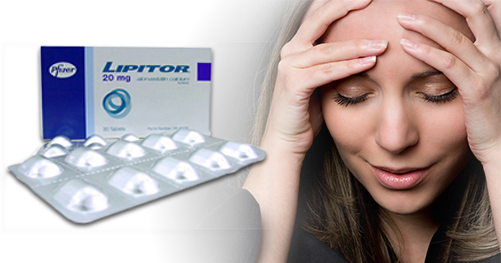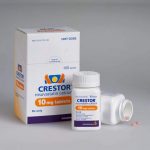Lipitor Side Effects In Females

Cholesterol is a fatty substance your liver makes. It’s also found in certain foods. Your body needs some cholesterol to function properly. But having too much of the bad type of cholesterol — low-density lipoprotein (LDL) — puts you at risk for having a heart attack or stroke.
According to the Centers for Disease Control and Prevention (CDC), having high cholesterol raises your risk for heart disease. Approximately 45 percent of women over the age of 20 have total cholesterol of 200 mg/dl and above, which is considered elevated — but a survey by the American Heart Association found that 76 percent of women say they don’t even know what their cholesterol values are.
Triglycerides, a type of blood fat typically measured alongside cholesterol, are even riskier in women compared with men. This is a problem because women’s cholesterol levels can fluctuate quite a bit after menopause and tend to increase with age, putting us at greater risk of heart disease and stroke. Knowing your cholesterol numbers and how to control them is a big step toward staying healthy.
The American Heart Association recommends that all adults have their cholesterol checked every 4 to 6 years, starting at age 20, which is when cholesterol levels can start to rise.
What is Lipitor?
Lipitor is a prescription medicine that lowers cholesterol in the blood. It lowers the LDL-C (“bad” cholesterol) and triglycerides in your blood. It can raise your HDL-C (“good” cholesterol) as well. Lipitor is for adults and children over 10 whose cholesterol does not come down enough with exercise and a low-fat diet alone.
Lipitor can lower the risk for heart attack, stroke, certain types of heart surgery, and chest pain in patients who have heart disease or risk factors for heart disease such as age, smoking, high blood pressure, low HDL-C, or heart disease in the family. Lipitor can lower the risk for heart attack or stroke in patients with diabetes and risk factors such as eye problems, kidney problems, smoking, or high blood pressure.
Limitations of Use: Lipitor has not been studied in people who have an increase of chylomicrons (Fredrickson Types I and V).
How should I take Lipitor?
Take Lipitor exactly as prescribed by your doctor. Follow all directions on your prescription label. Your doctor may occasionally change your dose to make sure you get the best results. Do not use this medicine in larger or smaller amounts or for longer than recommended.
Lipitor is usually taken once a day, with or without food. Take the medicine at the same time each day.
Do not break a tablet before taking it, unless your doctor has told you to.
You may need to stop using this medicine for a short time if you have:
• uncontrolled seizures;
• an electrolyte imbalance (such as high or low potassium levels in your blood);
• severely low blood pressure;
• a severe infection or illness; or
• surgery or a medical emergency.
It may take up to 2 weeks before your cholesterol levels improve, and you may need regular blood tests. You may not notice any change in your symptoms, but keep using the medication as directed. Your blood work will help your doctor determine how long to treat you with this medicine. You may need to take Lipitor for a long time or for life depending on your medical history.
Lipitor is only part of a complete treatment program that may also include diet, exercise, and weight control. Follow your doctor’s instructions very closely.
Lipitor side effects in women
Lipitor oral tablets can cause several side effects including a breakdown of muscle tissue, which can lead to kidney failure. This side effect happens more often in women than in men.
More common side effects
Some of the more common side effects that can occur with the use of Lipitor oral tablets include:
• cold symptoms such as runny nose, sneezing, and coughing
• confusion
• diarrhea
• forgetfulness
• gas
• heartburn
• joint pain
• urinary tract infection (UTI)
If these effects are mild, they may go away within a few days or a couple of weeks. If they’re more severe or don’t go away, talk to your doctor or pharmacist.
Serious side effects
Call your doctor right away if you have serious side effects. Call 911 if your symptoms feel life-threatening or if you think you’re having a medical emergency. Serious side effects and their symptoms can include the following:
• Muscle problems. Symptoms can include:
o unexplained muscle weakness, tenderness, or pain
o tiredness
• Liver problems. Symptoms can include:
o tiredness or weakness
o loss of appetite
o upper stomach pain
o dark urine
o yellowing of your skin or the whites of your eyes
• Allergic reaction.
How to cope with Lipitor side effects
What to do about:
- aches and pains in your back and joints – if you get unusual muscle pain, weakness or tiredness which isn’t from exercise or hard work, talk to your doctor. You may need a blood test to check what might be causing it. You can also ask your pharmacist to recommend a painkiller.
- cold-like symptoms – try taking paracetamol or ibuprofen regularly for a few days. If the symptoms return when you stop taking the painkillers ask your doctor for advice.
- constipation or wind – eat more high-fibre foods such as fresh fruit, vegetables and cereals, and drink plenty of water. Try to exercise more regularly, for example, by going for a daily walk or run. If this doesn’t help, talk to your pharmacist or doctor.
- diarrhoea – drink plenty of water to avoid dehydration. Signs of dehydration include peeing less than usual or having dark, strong-smelling pee.
- feeling sick (nausea) or indigestion – stick to simple meals and do not eat rich or spicy food. It might help to take your atorvastatin after a meal or snack. If you continue to get symptoms of indigestion ask your pharmacist to recommend an antacid. Contact your doctor if your symptoms continue for more than a few days or if they get worse.
- headaches – make sure you rest and drink plenty of fluids. Do not drink too much alcohol. Ask your pharmacist to recommend a painkiller. Headaches should usually go away after the first week of taking atorvastatin. Talk to your doctor if they last longer than a week or are severe.
- nosebleeds – try applying a thin layer of Vaseline to the inside edges of your nose.
- sore throat – try gargling with warm salty water (children shouldn’t try this), or use paracetamol or ibuprofen to ease any pain or discomfort. If the symptoms last longer than a week ask your pharmacist or doctor for advice.





